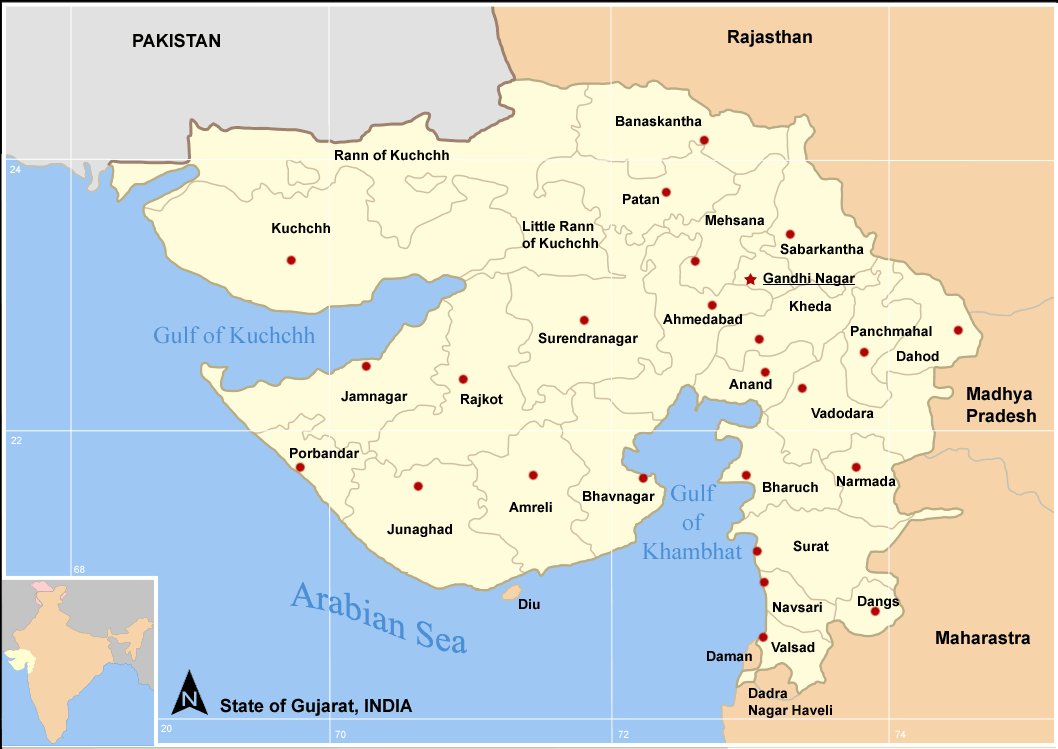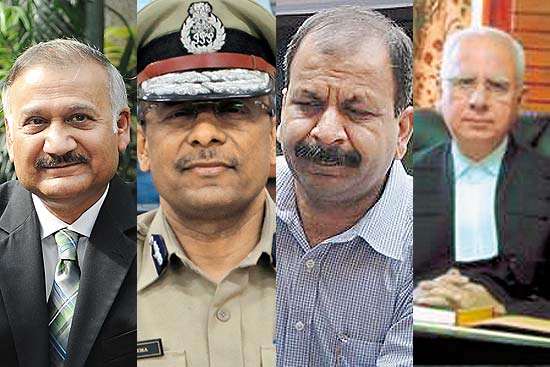Can a prime minister or ruling party be faulted for stuffing a ‘caged bird’ with men they trust, notwithstanding their public pronouncements to the contrary? The answer lies in the shrugs and knowing smiles CBI insiders give you in response to the appointment of Y.C. Modi as additional director and Arun Kumar Sharma as joint director at India’s “premier investigation agency” in the last two months.Belonging to the Assam-Meghalaya cadre, Y.C. Modi was part of the CBI team which investigated the Haren Pandya murder case. Pandya, a former home minister of Gujarat and a political rival of Narendra Modi, was gunned down in a park in Gandhinagar by alleged extremists in 2003. Pandya’s family, however, pointed fingers elsewhere and accused the CBI of derailing the investigation.
The Gujarat High Court in 2011 acquitted 12 persons in the Pandya murder case and criticised the CBI for a “botched-up and blinkered investigation”. The judgement went on to these scathing words: “The investigating officers concerned ought to be held accountable for their ineptitude resulting in injustice, huge harassment of many persons concerned and enormous waste of public resources and time of the courts”.
The officer’s Gujarat connection was renewed in 2010 when he was inducted into the Special Investigation Team headed by former CBI director R.K. Raghavan to investigate the Gujarat riots. Giving a clean chit to the then Gujarat CM, the SIT felt there was not enough evidence to prove that Narendra Modi had either not done enough to stop the post-Godhra riots or had given oral instructions to officers to do nothing to stop the rampaging mobs.
In a curious coincidence, Y.C. Modi investigated the three most important cases involving the post-Godhra riots, namely Gulberg Society, Naroda Patiya and Naroda Gam.
The amicus curiae appointed by the Supreme Court, senior advocate Raju Ramachandran, was not convinced. After meeting members of the SIT, including Y.C. Modi, Ramachandran asked whether the SIT could ignore the fact that two cabinet ministers were positioned in the control room but claim to have given no instructions during the rioting. Ramachandran also asked whether the SIT was entirely right in dismissing the deposition of Sanjeev Bhatt, ips, who claimed to have been present at a meeting when the chief minister was said to have given the oral instructions.Gujarat cast a shadow on yet another appointment made in April 2015 when Arun Kumar Sharma was posted to the CBI as joint director. Sharma, an ips officer, was IG (Intelligence) in the state in 2013 when Cobrapost and Gulail.com reported on what came to be known as ‘Snoopgate’. Audio tapes released in the public domain claimed that the Gujarat Police conducting illegal surveillance on the movement of a young woman, a Bangalore-based architect of Gujarati origin, on orders.
Over 239 conversations between the then home minister Amit Shah and Gujarat police officers were released to show Shah was not only monitoring the surveillance but was also perturbed that ‘Saheb’ seemed to be receiving more information than the sleuths brought to Shah and ahead of him too. In 39 more audio tapes released later, it was claimed that the IG (Intelligence) Sharma could be heard telling his own people to conduct a parallel surveillance of the woman not just in Gujarat but also in Karnataka.
The appointment of Sharma as a CBI joint director, therefore, was greeted with knowing smiles. But the drama was far from over. While the ips officer joined the CBI headquarters in April, he was not allocated any work till the middle of July. The buzz that the director, CBI, was under pressure to make Sharma JD (policy) became stronger as weeks passed.
JD (policy) is a crucial posting at the CBI headquarters, because that officer is the agency’s interface with the Central Vigilance Commission, different ministries and other agencies, besides overseeing coordination and correspondence. The argument that such a sensitive post required an officer who had served the CBI earlier and knew the functioning appears to have prevailed eventually. Sharma, for whom this is his first stint with the CBI, was finally asked to look after a different division. But bets are on that it’s a matter of time before he takes over as JD (policy).
After the NDA swept to power last year, the CBI, in a matter of weeks, repatriated the then JD (policy), Javeed Ahmed, back to Uttar Pradesh. Ahmed was widely tipped inside the agency for a promotion as additional director and was credited with the arrest of the nephew of the railway minister of the UPA days, Pawan Kumar Bansal, in an appointment racket concerning the railway board.
Agency insiders, therefore, were taken by surprise when he was asked to pack up. The corridors were soon abuzz with whispers that the officer had paid the price for being a distant relative of retired Supreme Court judge Aftab Alam. The retired judge had presided over a hearing in the Sohrabuddin Sheikh fake encounter case and had ordered the trial to be held outside Gujarat. While a crestfallen Ahmed, recall friends, had pleaded in vain for any posting in New Delhi, he was apparently told by the home secretary that BJP president Shah wanted him out.
As Y.C. Modi and Arun Kumar Sharma take charge, with the former already being tipped as the next director, things will remain much the same.
http://www.outlookindia.com/article/little-gujarat-in-cbi-headquarters/294874


Leave a Reply